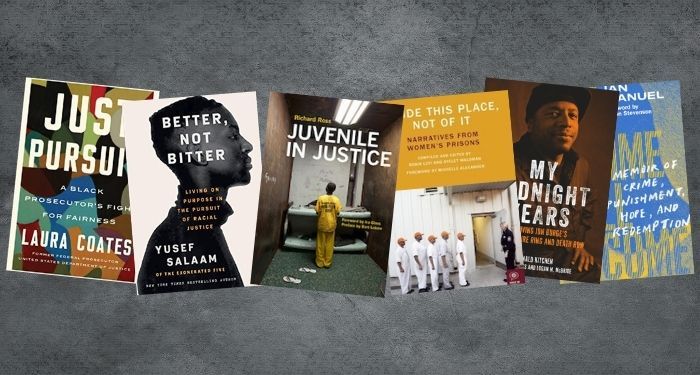
9 Books to Read After JUST MERCY
Bryan Stevenson’s Just Mercy was a big hit that resonated with readers, as it put a spotlight on our unjust criminal system through his work with the Equal Justice Initiative (EJI). Since its original publication in 2014, the book has gotten a YA release, Just Mercy (Adapted for Young Adults): A True Story of the Fight for Justice, and has been adapted into a film starring Michael B. Jordan, Jamie Foxx, and Brie Larson.
It’s an excellent book that uses Stevenson’s hard work to free people from unjust and wrong convictions to spotlight the systematic issues that target Black, brown, and marginalized people. It is one of those books that I think everyone should read, but I also don’t believe in reading only one book on a topic. Systematic issues affect a great deal of people and listening to as many voices as possible is always my goal. With that in mind, I’ve rounded up more books to read after you’ve read Just Mercy, from memoirs of lawyers who recount their cases and experiences with our unjust criminal system to memoirs by people who have been wrongly incarcerated for years, some of whom were on death row, and a journalist who went undercover in the private prison system.
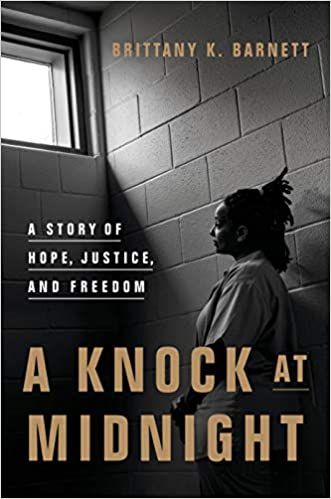
A Knock at Midnight: A Story of Hope, Justice, and Freedom by Brittany K. Barnett
This memoir is exceptionally written and covers really difficult topics while somehow keeping a spirit of hope — attributes that remind me of the writing of Just Mercy and even Chanel Miller’s Know My Name. In the memoir part of the book Brittany K. Barnett tells her story of growing up with a loving family, which included her mom who dealt with drug addiction, deciding to go to law school, and then discovering cases of people imprisoned for lengths of time that were grossly disproportionate to the crimes. The cases she takes readers into focuses on how the war on drugs created a war against Black and brown communities disproportionate to white ones by creating a fixed sentencing that was different for those found with powder cocaine versus crack cocaine. This unjust system gave many people life sentences for nonviolent drug offenses. Barnett also shows how addiction is treated cruelly, but she presents everything with hope and shows how to turn outrage into action.
Bonus: Karen Chilton does a great job narrating the audiobook.
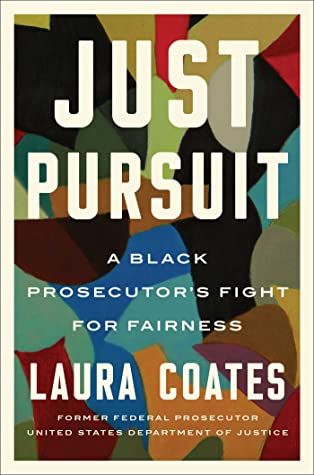
Just Pursuit: A Black Prosecutor’s Fight for Fairness by Laura Coates
Laura Coates worked as a prosecutor for the Department of Justice, hoping to advocate for vulnerable people. Instead, she realized that the system itself created problems. Specifically, she saw how the system was designed to have more Black, brown, and marginalized defendants and witnessed those within the system abusing their power. It’s impactful from the very opening where Coates takes you through the time a witness helping with a case was instead arrested by ICE no matter how much Coates attempted to help him.
Bonus: if you’re a fan of author narrated audiobooks, pick that format.
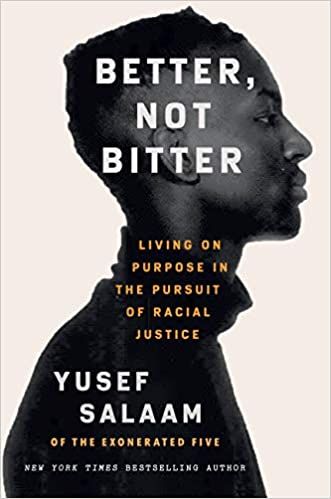
Better, Not Bitter: Living on Purpose in the Pursuit of Racial Justice by Yusef Salaam
Heartbreakingly and unjustly, Yusef Salaam was known for a long time as one of the Central Park Five and wrongly incarcerated for years. Now he’s a prison reform activist, and in his memoir, he tells his story of growing up in the ’80s in Harlem, life in prison, finding faith, and channeling what happened to him into positive action. Ultimately, it’s the story of Yusef Salaam being cruelly treated by society and finding a way to motivate and lead change.
Bonus: if you’re a fan of author narrated audiobooks, pick that format.
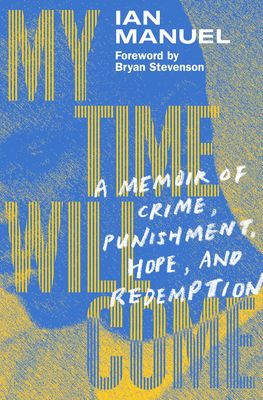
My Time Will Come: A Memoir of Crime, Punishment, Hope, and Redemption by Ian Manuel, Bryan Stevenson (Foreword)
Ian Manuel was one of the people the Equal Justice Initiative crusaded for. He tells his story of growing up in Tampa, Florida without a home, the botched mugging attempt where he shot a woman at the age of 14, and life in prison — 18 years of which were spent in solitary confinement. The U.S. is one of the only countries that sentences children ages 13 and 14 to life in prison without parole. Stevenson, through his EJI, fights against this cruel punishment of children, and Manuel tells how he spent two-thirds of his life in prison because of it.
Bonus: if you’re a fan of author narrated audiobooks, pick that format.
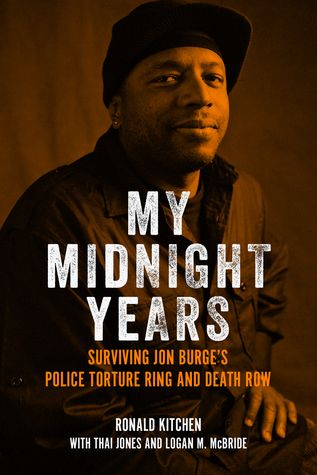
My Midnight Years: Surviving Jon Burge’s Police Torture Ring and Death Row by Ronald Kitchen, Thai Jones, Logan M. McBride
This memoir once again shows how unjust the system is in a true crime memoir blend. You get to know Kitchen and his upbringing and how he was suddenly accused of a murder he did not commit by police commander Jon Burge and his rogue cops, the Midnight Crew, who terrorized and incarcerated men for decades. Kitchen waited at every step for the justice system to correct this grave injustice, but instead ended up on death row. It was in prison where he co-founded the Death Row 10 to expose how the system is unjust and creates wrongful convictions.
If you audiobook, I highly recommend that format as Prentice Onayemi is an excellent narrator.
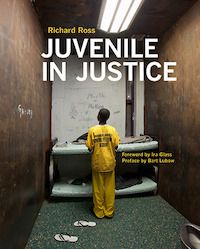
Juvenile In Justice by Richard Ross, Ira Glass (contributor), Bart Lubow (contributor)
This book has photographs and essays by Ira Glass of National Public Radio’s This American Life and Bart Lubow, Director of the Annie E. Casey Foundation’s Juvenile Justice Strategy Group. Richard Ross went to 200 juvenile detention institutions in 31 states to visit over 1,000 confined youths. Here, he shares their photographs and their stories as told to him. This book is the voice of imprisoned children — which, should we even be able to say “imprisoned children?”
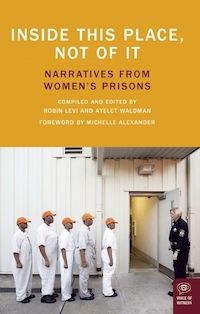
Inside This Place, Not of It: Narratives from Women’s Prisons by Robin Levi (Editor), Ayelet Waldman (Editor)
This books speaks with people incarcerated in women’s prisons with a focus on the abuses experienced while in prison. Women are taken in for surgeries and years later discover that they were sterilized without their knowledge or consent. There is mental, emotional, physical, and sexual abuse suffered with no one to listen or care. Here we hear their voices and the horrific treatment they’ve endured.
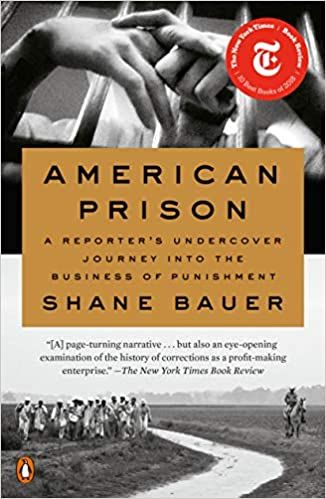
American Prison: A Reporter’s Undercover Journey into the Business of Punishment by Shane Bauer
Shane Bauer takes us into his undercover work as a guard at a private prison in Winnfield, Louisiana. We get a look at how private prisons work, including their history, the cruel treatment of inmates, and the entry-level jobs that paid $9 an hour. All while Bauer discovers that the actual job he was doing was changing him, and not for the better.
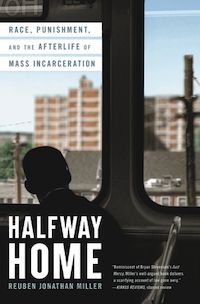
Halfway Home: Race, Punishment, and the Afterlife of Mass Incarceration by Reuben Jonathan Miller
I’m going to end with a focus on how prisons and our unjust system is not designed to rehabilitate people. Here, Reuben Jonathan Miller, a chaplain and a sociologist studying mass incarceration, spotlights the lie that people can pay their debt to society and then return to society with full rights. Instead, they’ll find it increasingly difficult to rent, be hired, and may not even be given back their right to vote.
You can learn more about Bryan Stevenson’s Equal Justice Initiative, along with how to donate. And here’s a deep dive inside prison newspapers.
















